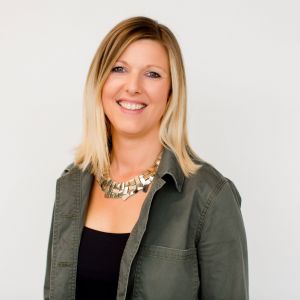
It’s no secret that mental health is one of my passions and something I intertwine into my work. A goal of mine is to see action on mental health in the workplace. I was highly encouraged this week after speaking at the Iowa Healthiest State Annual Conference. The conference focused on mental health and what we can do to move the conversation forward and take tangible steps in the work place.
A lesser known fact is that team SNoW Co. has a strong bond because of mental illness. Each of us has a diagnosis that has strengthened our connection as a team because we have been able to support each other, recognize when someone needs us to show up for them, and advocate against mental illness stigmas. It’s a powerful bond; one that makes us a bit of a Super Team.
So often, a mental health diagnosis is talked about in terms that are skewed with negativity. Internet searches, doctor’s appointments and support groups bring up scary things such as triggers, warning signs, symptoms and outbursts. And we recognize these are all realities of a mental illness. But on the flip side of a diagnosis is strength, resilience and discovering new capabilities. One might say you gain super powers.
Thank you to my team for playing fully brave and sharing their stories and super powers. It’s not easy to publicly share your mental illness, but each team member willingly stepped up to share their story in hopes it reaches someone who needs to hear it.
 Katie Martin
Katie Martin
It has been 1 year and 6 months since I received my diagnosis and started treatment for PTSD, and a week ago my therapist and I decided that I was finally able to start working on maintenance instead of full cognitive reprocessing. For the last year and a half, I have devoted 3-4 hours per month to treatment in an effort to correct negative thoughts and behaviors about me and the world around me. It’s an incomplete journey that still has many miles and what has become incredibly clear so far is how much I am worth and how important it is to show up for myself. In the past, I have completely given myself over to other people and other commitments, rarely making my wants and needs a priority, all in an effort to make others happy and keep them around. So when a friend is trying to get me to come out and I would rather watch Netflix, I now give myself permission to do so. When my mom asks me to come over for dinner on Sunday night and I know I need recovery time before Monday, I don’t feel guilty for setting boundaries with her. When it’s time to log off for the day from work, I completely log off without wondering who is emailing me. I allow myself permission to not feel guilt or shame because I chose myself over others. It has lifted the world from my shoulders and it seems so simple now. If there’s one thing I can convince others to do, it’s to give yourself permission to take care of YOU above all else.

Kristin Sauter
Diagnosis: Social Anxiety
Strengths I discovered through my mental health journey: Discomfort, pain and growth
When I moved from London, England, to Des Moines, Iowa early last year, the act of moving didn’t feel uncomfortable to me at first. But since I fight an anxious mind, often daily, the big move meant discomfort on a very different level. It required me to find a completely new support network – 4,500 miles away from home. I am talking about the kind of people you can share your deepest struggles with. That’s especially important for someone who’s fighting loneliness as a result of mental illness. And since I didn’t know the cultural norm in Iowa, or the US, the move required a much more vulnerable act, even bigger than relocating countries. It required me to openly and honestly share my story with total strangers, all in the hope of building relationships with people who would truly care about me. Over the past 15 months, I leaned heavily into discomfort and pain in order to grow. With this purposeful vulnerability, I experienced growth in many forms – delivering my first public speech in front of 230 people, following my passion of mental health by establishing a learning and event platform, Curo, and hosting workshops to reach others with a focus on mental well-being. The success I’ve experienced so far would not be possible without the strength and guidance I’ve gained through the honest and supportive relationships I’ve built here. They are the amazing reward for my courageous efforts to embrace my vulnerabilities, discomfort and pain.

Rachel Peterson
I was diagnosed with depression at age 18. I went through multiple bouts of skipping therapy appointments and foregoing refilling my antidepressants. All of this circled around the fact that I didn’t want to ‘be’ my diagnosis. I thought that having a mental illness made me less of a person, weaker. But over time (and with lots of therapy and medication), I came to understand that along with my diagnosis came resiliency. This resiliency carried me through moving to different cities, job changes, and most recently, a breast cancer diagnosis. I am a fighter because I learned to fight through my depression.
Maybe more important than my resiliency is the perspective my mental illness has gifted me. Not the perspective on my own life, but the lives of others. I have walked countless friends through being newly diagnosed with a mental illness. I understand what it feels like to be in a deep, dark hole and how this affects relationships. I’ve learned to give others grace because I needed grace while grappling with my own diagnosis.

Teresa Peterson
Earlier this week, I had the pleasure of joining Sarah during her interactive keynote at the Iowa Healthiest State Initiative Annual Conference. As table groups were discussing their ideas for supporting mental health in the workplace, I heard several comments related to what “we” can do to help “them”, with “we” being the seemingly normal people and “them” being the people struggling with mental health. This didn’t sit well with me, because I am one of “them”. I am a highly-educated, productive, funny, intelligent, loving person, who also has Generalized Anxiety Disorder. And like many of “them” in a similar situation, you probably don’t know I have this struggle, because I am masterful at managing the outward appearance of my anxiety.
I want to extend a loving reminder—because you have a brain, mental health matters to you. We often think of mental illness that involves a diagnosis, therapy, and perhaps medication. There are many of us who have mental health challenges that are chronic. While they are not likely to go away, we manage them very effectively. There are also short-term mental health challenges that can affect people at any time. Life events like divorce, illness or death of a loved one, or a car accident affect our mental health. To pretend this is not the case or that it is not even a possibility is to be dishonest with ourselves and each other. I want to challenge us to discuss mental health in ways that are mindful of this range of possibilities—from chronic to episodic, from biological to situational, and beyond.
There is no “we” and “them”. There is just all of us together.

